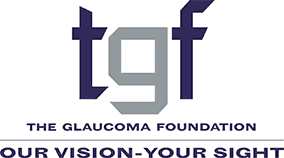Many of us spend too much time looking at the tiny screen of our smartphones or our tablet, laptop and desktop computer screens. In fact, a recent study found that 30 percent of adults are spending more than nine hours a day using a digital device. Although there’s little known risk for permanent vision damage, they can cause a lot of eyestrain and discomfort. What to do?
- Reading on a small screen can strain eye muscles, causing blurry vision and headaches. A rule to remember: every 20 minutes, look up at something about 20 feet away, for about 20 seconds.
- Blink! While staring at a screen we blink half as often as is the norm, which is typically about 15 times a minute. That causes your eyes to become dry and irritated.
- Adjust your display settings. Glaucoma patients can experience a decline in contrast sensitivity. Black text on a white background is best, though other dark on light combinations can work. Adjust text sizes on your computer screen and smartphone. For example, on an iPhone, open the Settings menu, choose General, then Accessibility, then Large Text. If you don’t know how to adjust the view on your device, check the manufacturer’s website.
- Numerous helpful magnification apps are available. One called SuperVision Magnifier provides extra light by using the phone’s camera and also has an image stabilization feature so that the enlarged type or images, such as from a menu or magazine, don’t seem to move around.
- Glaucoma patients are often sensitive to glare. Try to reduce reflections from windows and lights. Frequently dust digital screens. Talk to your doctor about a no-glare coating on glasses to soften the glare from harsh office lighting.
- If your older desktop monitor is causing eye strain, replace it with a flat-panel LCD screen that is easier on the eyes. Select a screen with the highest resolution possible.
- Avoid staring at a bright screen in dark lighting conditions, such as checking messages on your cell phone in your bedroom. Heavy smartphone users should also be careful to avoid too much reading in bed at night, as the blue light emitted from mobile devices can suppress the production of melatonin, which helps regulate sleep.
The takeaway? Smartphones are great, but good habits will help keep your eyes healthier. And don’t forget to have your eyes tested regularly.
